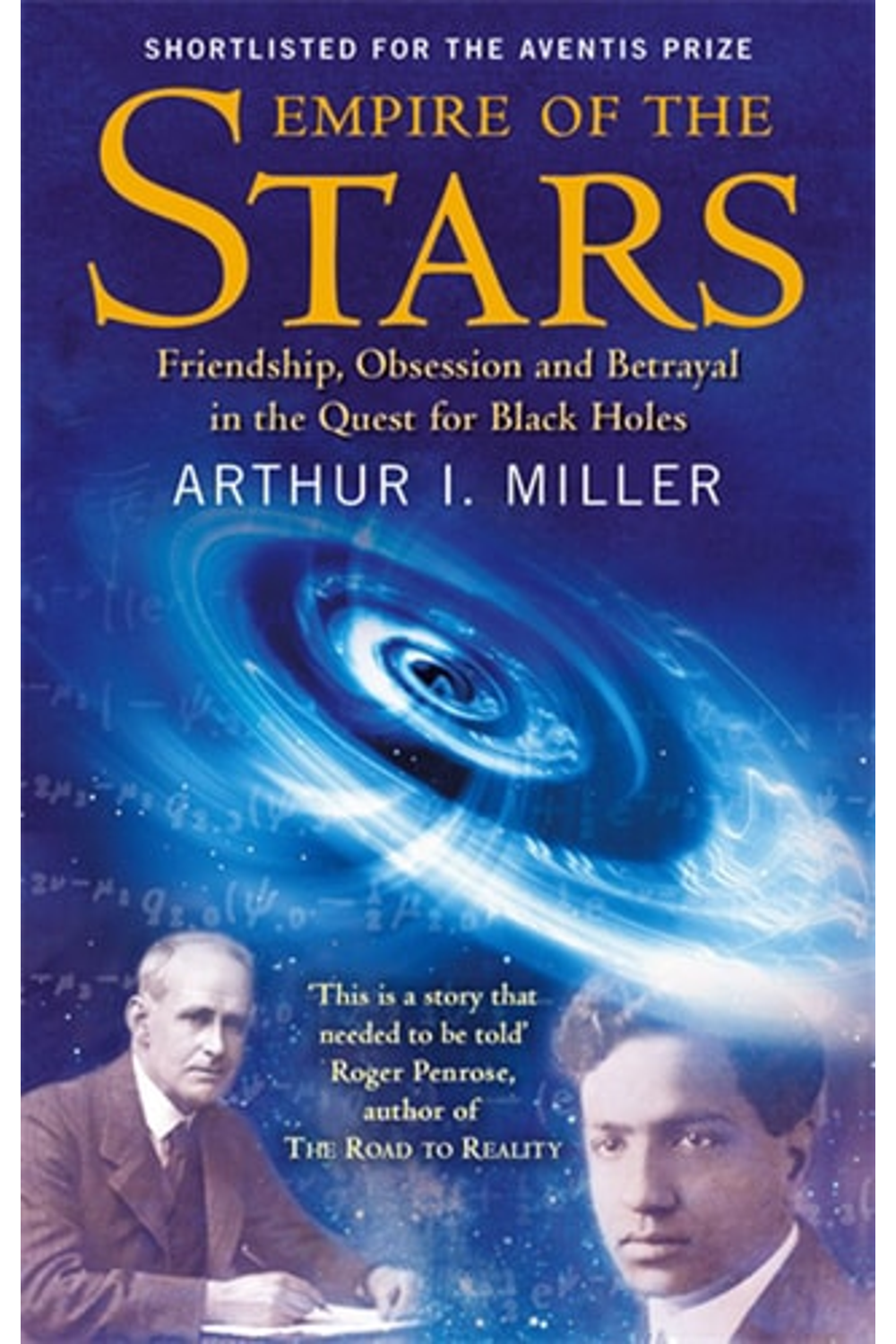Dive into a captivating true story of scientific rivalry and groundbreaking discovery with Arthur I. Miller’s “Empire of the Stars: Friendship, Obsession and Betrayal in the Quest for Black Holes.” This compelling book explores the turbulent journey of Subrahmanyan Chandrasekhar (Chandra), the brilliant astrophysicist who first theorized the existence of black holes. Witness the clash between Chandra and his mentor, Sir Arthur Eddington, whose staunch opposition nearly derailed Chandra’s career and delayed the acceptance of his revolutionary ideas for decades. Miller masterfully blends scientific history with personal drama, revealing the human side of scientific progress and the cultural biases that can stifle innovation. Explore themes of ambition, betrayal, and the relentless pursuit of truth in this essential read for anyone fascinated by science, history, and the complex relationships that shape our understanding of the universe. Discover the story behind the “Chandrasekhar Limit,” a cornerstone of modern astrophysics, and the price its discoverer paid for challenging the scientific establishment.
Empire of the Stars: Friendship, Obsession and Betrayal in the Quest for Black Holes
18,15 $
In stock
In August 1930, on a voyage by boat from Bombay to England, the young Indian scientist Subrahmanyan ChandrasekharChandra, as he was calledlooked up at the stars and contemplated their fate. He calculated that certain stars would suffer a violent death, collapsing almost to nothing. This extraordinary claim, the first mathematical description of black holes, rankled one of the foremost astrophysicists of the day, Sir Arthur Eddington. When Chandra expounded his theory in front of the Royal Astronomical Society in 1935, Eddington subjected him to humiliating public ridicule, setting into motion one of the greatest scientific feuds of the 20th centuryand hindering the progress of astrophysics for nearly 40 years. In its clash of personalities, epochs, and cultures, this story reveals the deep-seated psychological and philosophical prejudices at work in the acceptance and rejection of new scientific ideas.
| Authors | |
|---|---|
| Binding | |
| Condition | |
| ISBN-10 | 034911627X |
| ISBN-13 | 9780349116273 |
| Language | |
| Pages | 416 |
| Publisher | |
| Year published | |
| Weight | 300 |
Related products
- Additional information
- Currencies
- USD – United States dollar
- EUR – Euro
- GBP – Pound sterling
- CNY – Chinese yuan
- BRL – Brazilian real
- MXN – Mexican peso
- JPY – Japanese yen
- PHP – Philippine peso
- THB – Thai baht
- PLN – Polish złoty
- CAD – Canadian dollar
- MYR – Malaysian ringgit
- AUD – Australian dollar
- TWD – New Taiwan dollar
- CZK – Czech koruna
- SEK – Swedish krona
- HUF – Hungarian forint
- ILS – Israeli new shekel
- CHF – Swiss franc
- HKD – Hong Kong dollar
- DKK – Danish krone
- SGD – Singapore dollar
- NOK – Norwegian krone
- NZD – New Zealand dollar





